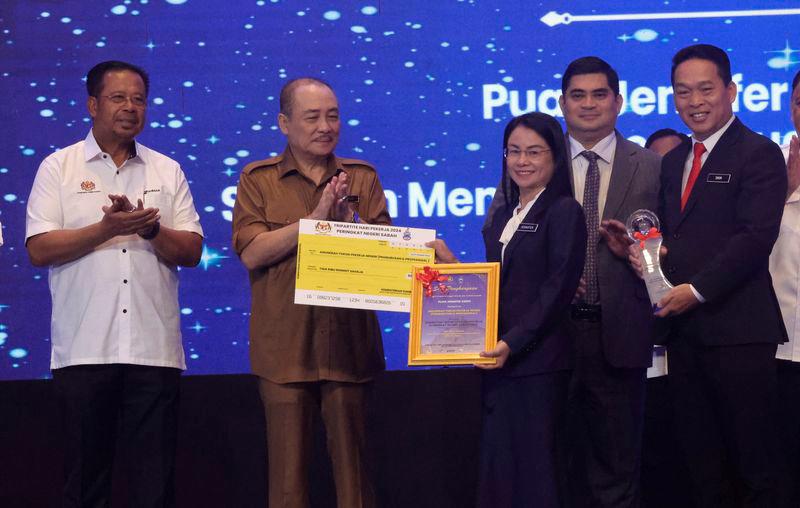KOTA KINABALU: The proposed amendments to the Sabah Labour Ordinance (SLO) involve 12 major changes to the 62 clauses in the ordinance which has been enforced since 1950, said Chief Minister Datuk Seri Hajiji Noor.
He said the SLO had been amended in 2005, and the latest proposed amendments to the ordinance involve measures to extend the SLO to all workers regardless of salary cap or type of employment, and the period of maternity leave to be increased from 60 days to 98 days.
Apart from that, he said that among the proposed amendments is for husbands to be given paternity leave for seven days for all legitimate wives but only for the first five children, and that working hours is to be reduced from 48 hours a week to 45 hours a week.
“A period of 19 years (since 2005) is a long time... A law needs to be reviewed to be improved, especially laws involving workers’ welfare and employers’ needs to conduct business,“ he said here today.
“There is no doubt that more up-to-date laws can attract more foreign companies to invest more confidently and comfortably in Sabah. This amendment is timely because the state government is in dire need of labour legislation that is relevant and appropriate to the current situation.”
Hajiji said this when officiating at the State-Level Workers’ Day Tripartite Celebration 2024 at the Sabah International Convention Centre (SICC) here. The event was also attended by Deputy Human Resources Minister Datuk Seri Abdul Rahman Mohamad and Sabah Deputy Chief Minister III Datuk Shahelmey Yahya.
On May 1, Prime Minister Datuk Seri Anwar Ibrahim said at the national-level Labour Day 2024 celebration in Putrajaya that the amendments to the Sabah Labour Ordinance and Sarawak Labour Ordinance bills will be tabled in the next Parliament session.
Anwar is reported to have said that the amendment to the Sabah Labour Ordinance (Ordinance Cap 67) and Sarawak (Ordinance Chapter 76) is to ensure that it is in line with the Labour Act 1955 which applies in Peninsular Malaysia.
Hajiji said that the proposed amendments would also provide comprehensive, fair and equitable benefits to every employee and employer, even equivalent to the legislation in Peninsular Malaysia, further safeguarding the welfare of employees and ease of doing business for employers.
He said the amendments would make it easier for Malaysia, especially Sabah, to penetrate a larger market through the Comprehensive and Progressive Agreement for Trans-Pacific Partnership (CPTPP) involving 11 countries, which resulted in attracting more investors and creating job opportunities for Sabahans.
Hajiji is confident that the SLO amendments will raise the image of Sabah at the international level, especially in relation to issues of human and labour rights, as well as the issues of eliminating discrimination, and eradicating forced labour and child labour.
He said the industry also needs laws that can adapt to the needs of the latest industrial revolution involving automation technologies such as the Internet of Things, Big Data, Artificial Intelligence and Cloud Computing.
Therefore, he said the state government has high hopes that the proposed amendments can be presented at the next session of Parliament so that they can be implemented as soon as possible so that workers and employers in Sabah can enjoy the benefits.
Meanwhile, he said the state government also supports the establishment of the Sabah-level Labour Advisory Council comprising trade unions and major employers’ associations representing all workers and employers in the state.
“Whereas the government side consists of 16 state and federal government departments and agencies that play a role and are responsible for state labour issues,“ he added.









